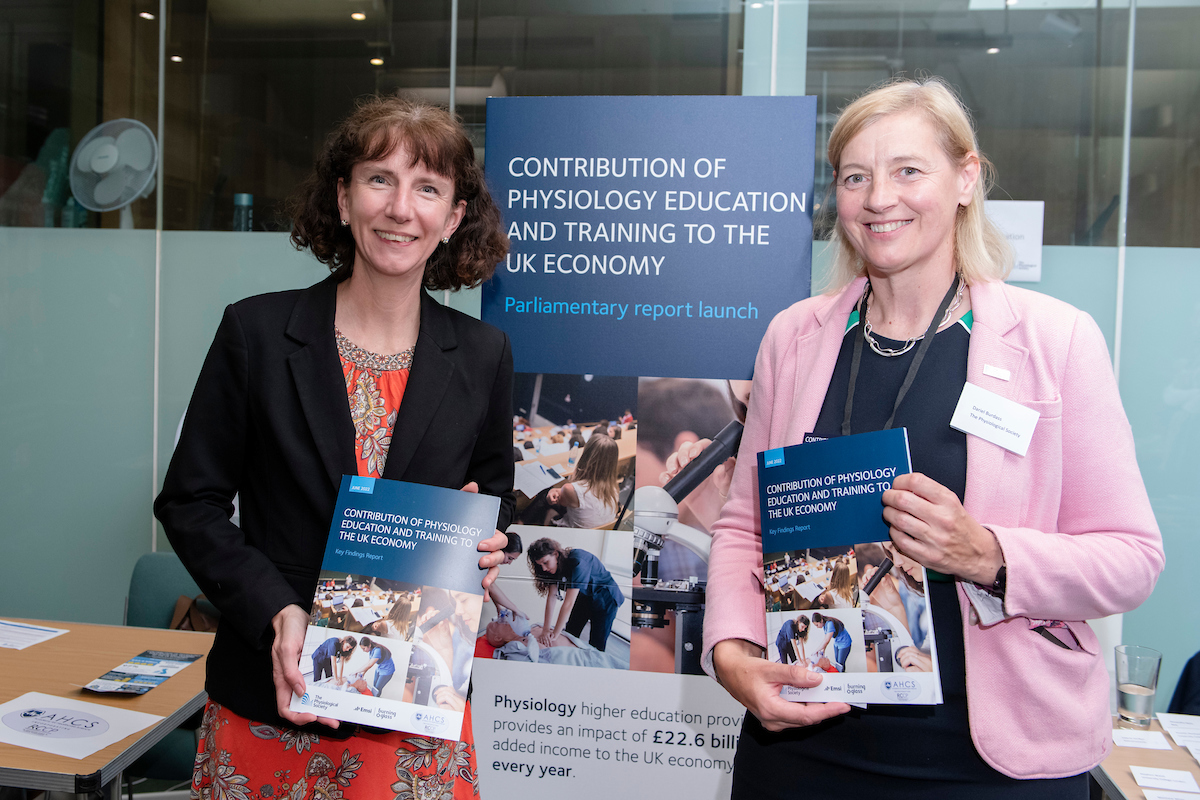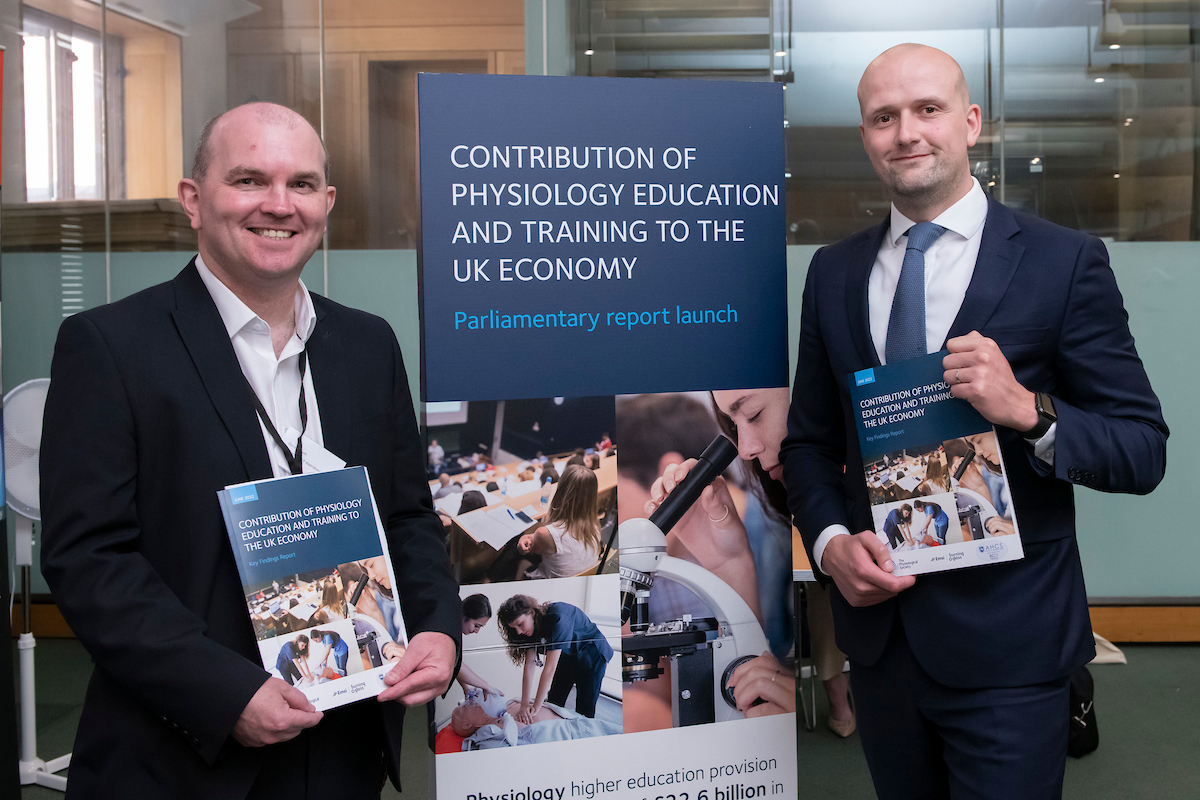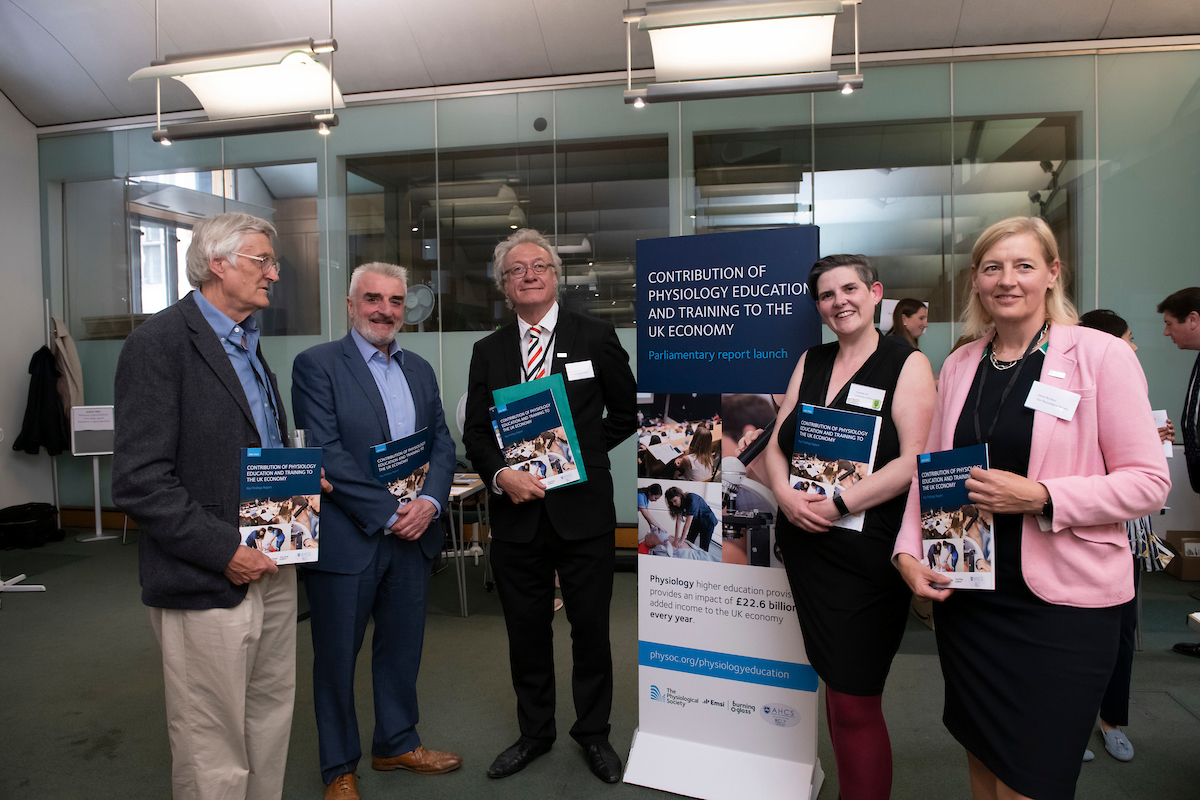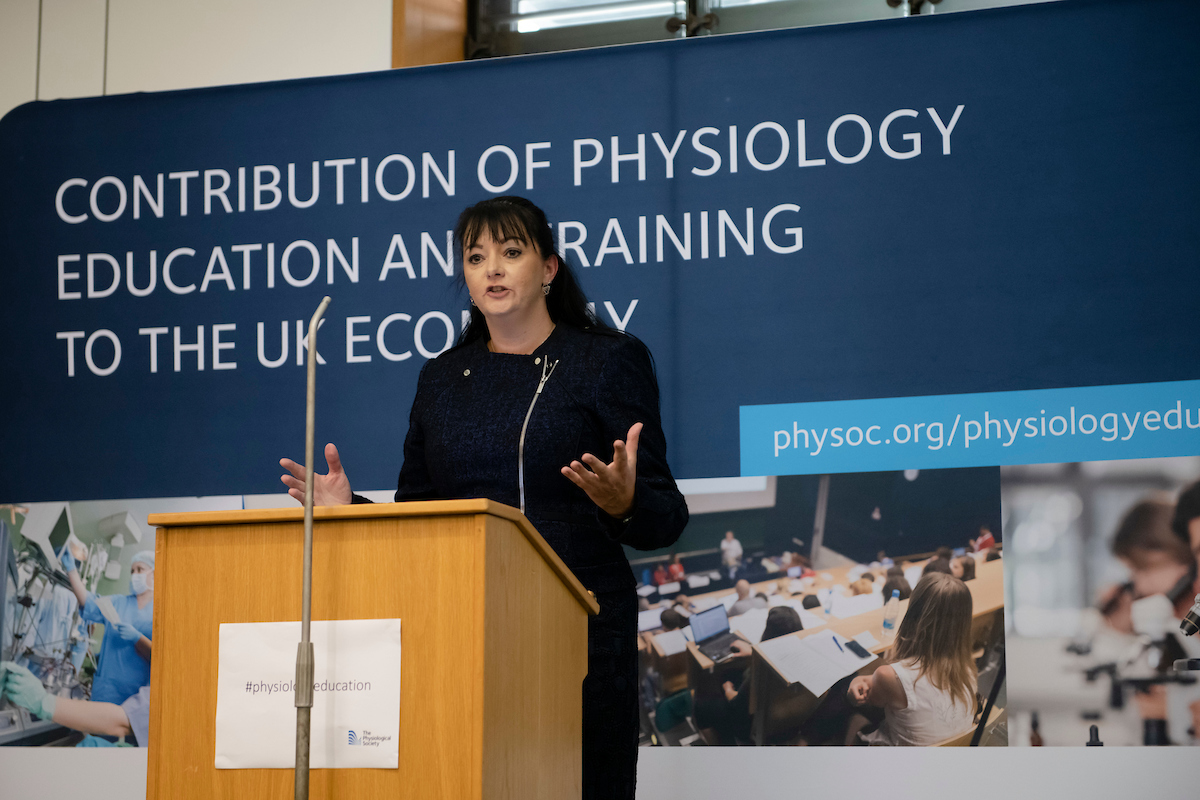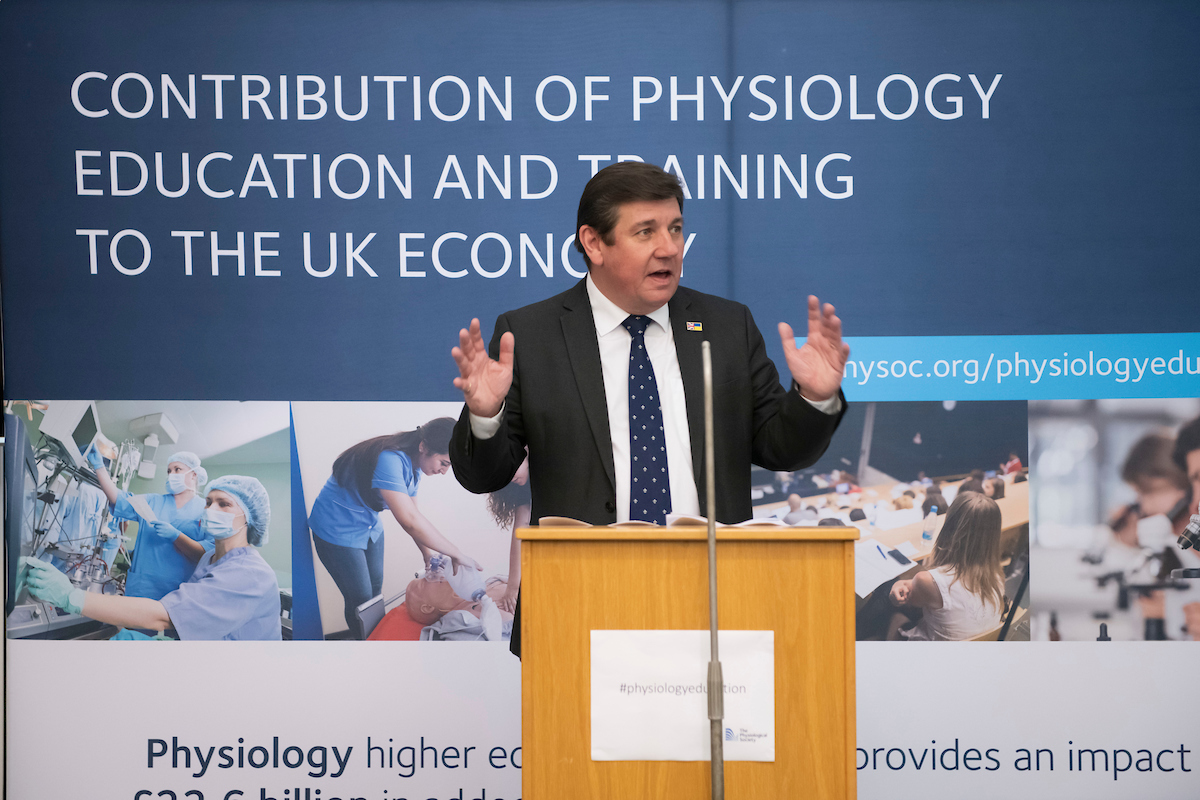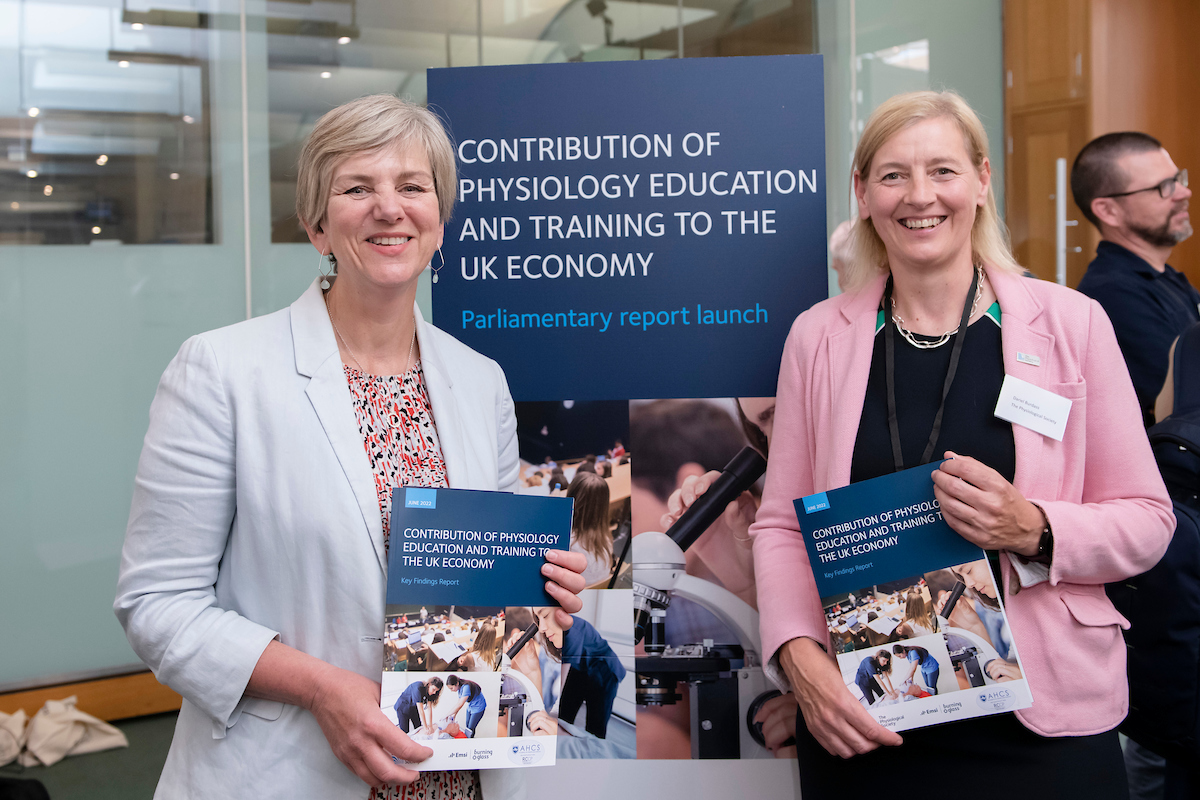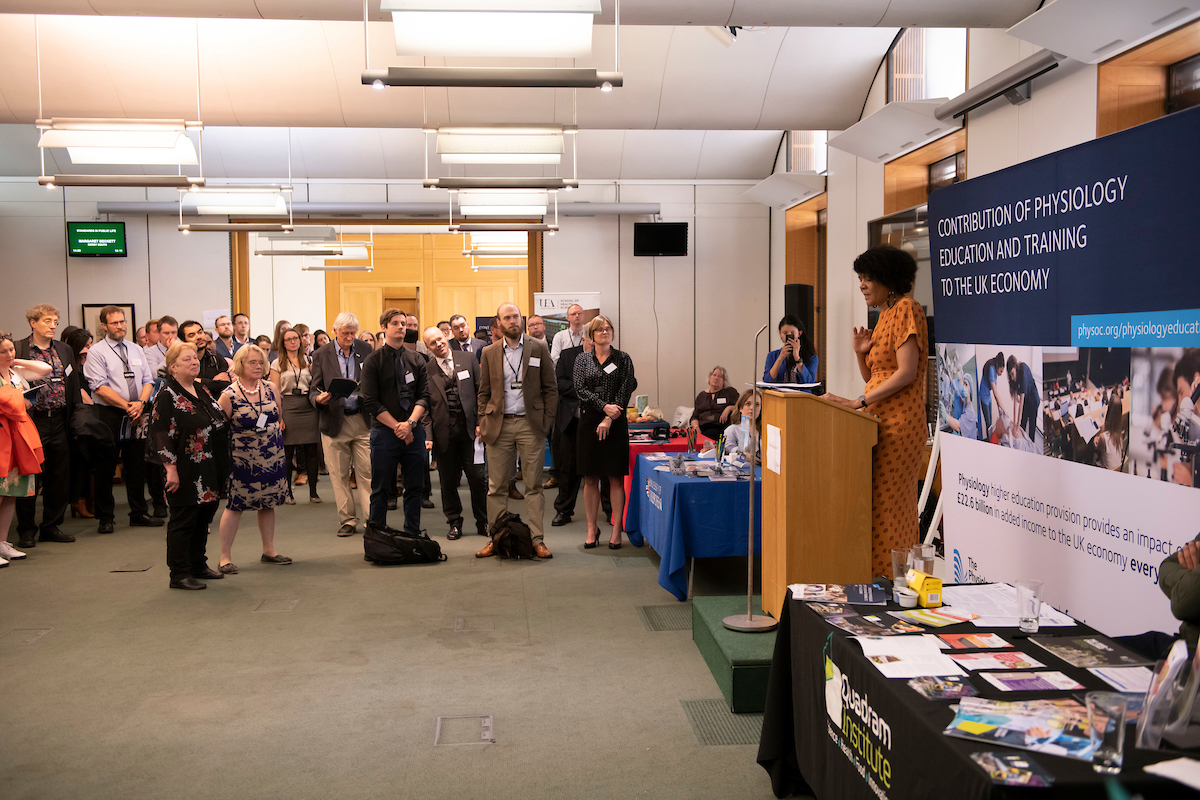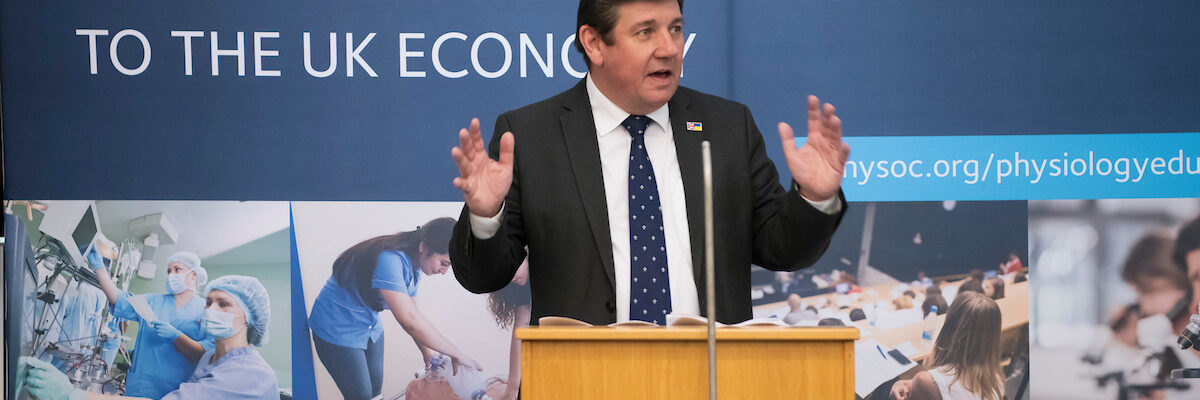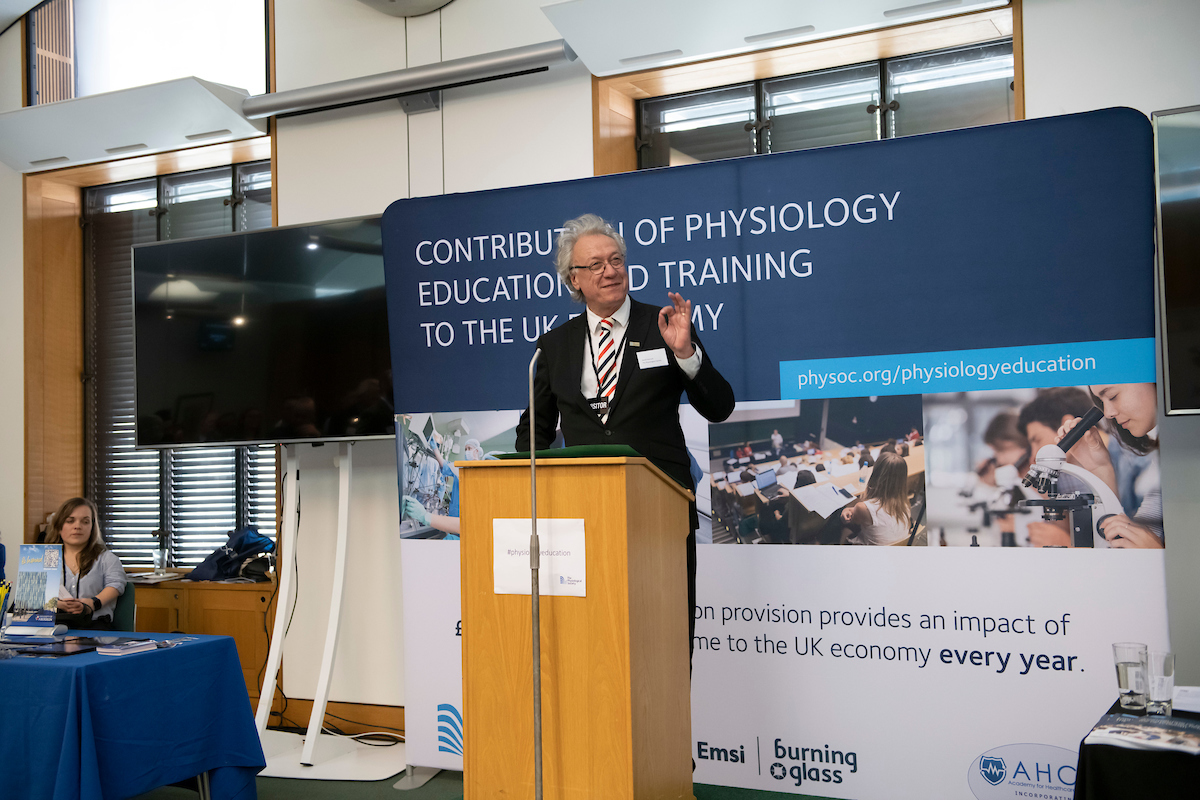
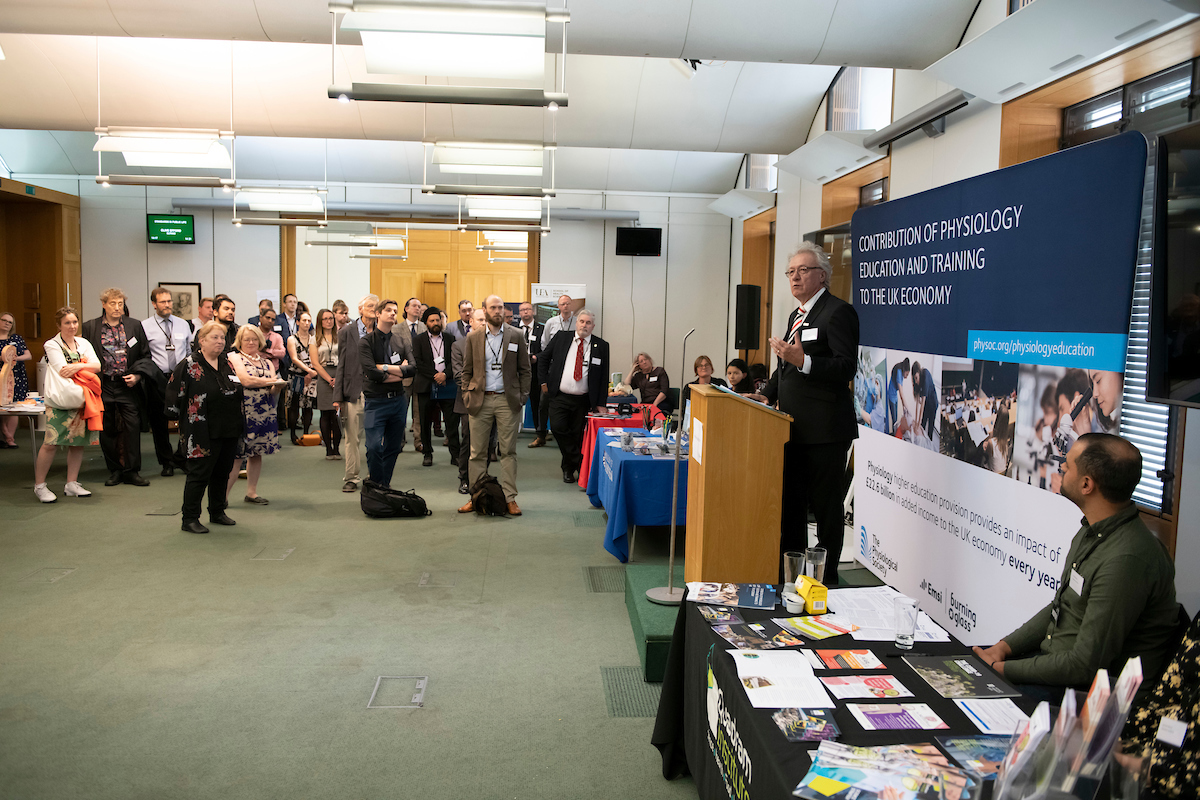
Physiology graduates contribute £22.6 billion to the UK economy every year, equal to supporting 777,200 jobs, a new report launched today in Parliament reveals.
In the first independent analysis of its kind to quantify the impact of physiology education on the UK economy, it was found that every £1 invested by a student in their physiology education yields them £4.40 in higher future wages.
Approximately 97% of students who study physiology related courses stay in the UK after graduating, contributing a staggering £35.6 billion to society and the public purse through higher earnings and added tax revenue. Plus, they will save £825.9 million in social costs across healthcare, unemployment benefits and crime.
The analysis, carried out by independent economy agency Emsi Burning Glass for The Physiological Society and Academy for Healthcare Sciences, demonstrates the importance and need for physiology to be at the heart of university courses, public health and clinical care.
The report will be launched in Parliament today, Tuesday 7 June, at a reception featuring MPs from across the country, as well as leading physiologists, educators and practitioners.
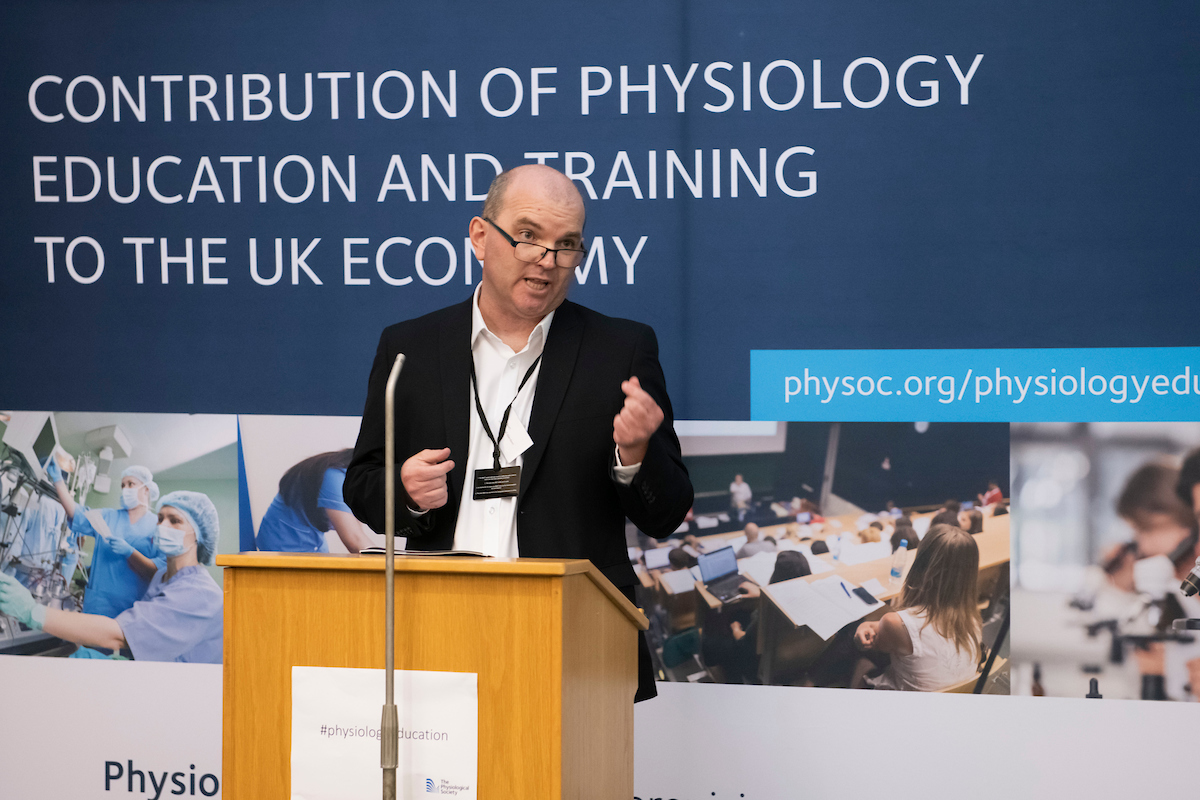
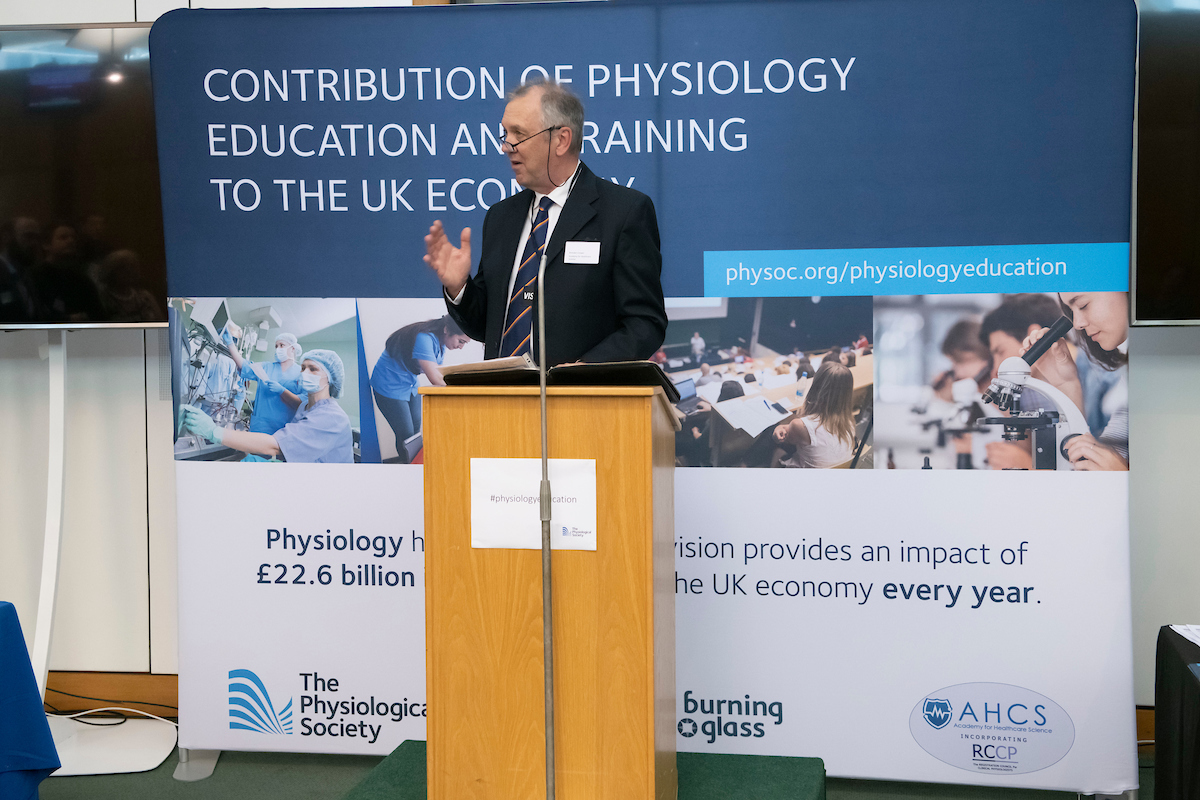
Professor Derek Scott, who chaired the report for The Physiological Society, said:
“This report demonstrates for the first time the huge contribution that physiology education and training makes to the UK economy, with graduates contributing £22.6 billion to the economy every year.
Physiology is the science of life and therefore it is intrinsically linked to healthcare, but it goes beyond this. The report shows the lifecycle of physiology education, from facilitating the discovery of new treatments to translating findings into clinical practice to save lives and improve human health.”
Professor Brendan Cooper, Expert Group Co-Chair, University of Birmingham, UK, said:
“In addition to the economic analysis, the report also includes case studies showing the variety and impact of occupations held by physiology graduates. Beyond the lab, physiologists are working in communities, elite sport settings, schools and universities. A large number occupy roles in healthcare, with nearly one-third employed as nurses, as well as positions ranging from medical radiographers to physiotherapists, indicating the health benefits physiology provides for society as a whole and the COVID-19 pandemic has emphasised the critical importance of physiology.”
When novel diseases emerge, a physiology degree can equip healthcare professionals to quickly innovate to give patients the best care. Throughout the pandemic, clinically applied physiology has been a backbone of the science and technology sector, used by medics, nurses, healthcare scientists and allied health professionals.
The report is focused on the economic impact of courses related to the physiological sciences delivered by UK higher education institutions in terms of added income to the UK economy and jobs supported. The findings are based on student data from the academic year 2018-19. The total contribution to the UK economy could be greater than calculated in this report.
